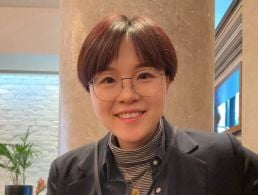We spoke to three Mastercard execs about the technology the company is working on and how Dublin became the birthplace of its R&D arm.
It’s an exciting time to work in tech with so many emerging trends making their way throughout the industry, from blockchain and quantum computing to augmented reality and the metaverse.
For a finance giant such as Mastercard, emerging tech has been a growing part of its business for several years, evolving far beyond card payments and expanding into a whole world of tech innovation.
Mastercard opened its first hub in Ireland in 2008. From there it became what Nicole Turner, senior vice-president of Mastercard’s technology hubs, described as “the birthplace of our R&D arm”.
The payments giant announced a new Dublin campus in February 2020, with plans to hire 1,500 new employees.
In April of this year, the company officially opened the doors of its European Technology Hub, One South County, in Leopardstown. The building can accommodate more than 2,000 employees, a headcount Mastercard is aiming to reach by 2025.
Turner said Dublin was a key location for Mastercard’s European Technology Hub due to its proximity to tech giants and universities. “When we think about the talent and the future of work and the type of talent that we need, we house them within our tech hub,” she said.
Working in Mastercard
Mastercard’s president of technology and operations, Ed McLaughlin, said the company aims to create new consumer experiences as it moves further into the digital world.
“We’re constantly applying some of the most advanced research back into the practical every day of running the network for our customers,” he said.
“[With] things like cybersecurity, we’re applying advanced AI, we’re incorporating things like quantum-resistant techniques and actually using quantum technology itself to begin securing the network.”
Mastercard chief innovation officer Ken Moore added that employees are doing incredibly innovative work with emerging tech.
“We are no longer just a card network today,” he said. “As we lean into and create new businesses for new customer segments like business banks and mobile network operators and telcos and fintechs, we’re using technologies like blockchain, like crypto, like smart contracts, augmented reality, virtual reality, quantum computing, to create and compete in these new spaces.”
McLaughlin added that what’s important to those working in technology is not just the tech itself, but about who they get to work with.
“That’s what’s most important and what we’re doing in our tech hubs around the world, what we’re doing here in Dublin, is trying to create spaces where people can come together and do their best work,” he said.
10 things you need to know direct to your inbox every weekday. Sign up for the Daily Brief, Silicon Republic’s digest of essential sci-tech news.




